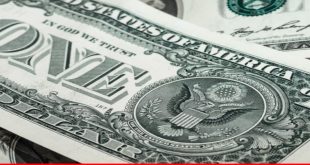A $2 trillion plus industry, Islamic finance is said to have progressed in leaps and bounds – a staggering average growth of 17.6% during 2009-13 and a further growth forecast at an augmented rate of 19.7% through 2018. While 80% of the finance remains deployed in non-interest-based, conventional banking transactions carried out through Islamic banks or Islamic windows of traditional banking units, 15% is taken up by Islamic bond market – sukuk – which fact, according to some, is an “answer” to the conventional bond market. Of the rest, 4% goes to Islamic investment funds and 1% to Islamic insurance, takaful.
The total Islamic banking assets, however, represent just 1% of the global conventional banking assets. In case of Pakistan, this ratio is 11%, which by itself looks a matter of rejoicing; but, hold for a second. A country thought to be, especially after acquiring the status of an atomic power, the bastion of Islam and a focal point of the Ummah, a 9th rank by the size of Islamic banking assets in a league of some 50 Islamic countries, is certainly not something to sing about.
In case of Iran, this ratio is 100% as it opted for a fully integrated Islamized banking system just after the Revolution. After Iran, the next leading countries are Malaysia and Saudi Arabia. Malaysia, in particular, has created waves in sukuk market. It boasted 58.1% share in the globally outstanding sukuks, end of 2013. During the recent years, Pakistan has also issued sovereign Islamic bonds worth dollar one billion, albeit at a much higher profit rate to cover up its weak financial position in global markets. What is more disappointing is the fact that Pakistan’s rank has been subject to a constant drop. In 2012, the rank slipped from 7 to 8 and then from 8 to 9, in 2014.
|
TABLE SHOWING TOP 10 COUNTRIES BY THEIR SHARE IN GLOBAL ISLAMIC FINANCE
|
||||
|---|---|---|---|---|
|
COUNTRY |
2013 POINTS |
RANK 2013 |
RANK 2012 |
RANK 2011 |
|
Iran |
73.20 |
1 |
1 |
1 |
|
Malaysia |
45.76 |
2 |
2 |
2 |
|
Saudi Arabia |
44.35 |
3 |
3 |
3 |
|
UAE |
22.12 |
4 |
5 |
5 |
|
Indonesia |
21.67 |
5 |
7 |
4 |
|
Bahrain |
20.12 |
6 |
6 |
8 |
|
Kuwait |
18.00 |
7 |
4 |
6 |
|
Pakistan |
15.17 |
8 |
8 |
7 |
|
Sudan |
14.39 |
9 |
10 |
10 |
|
Bangladesh |
9.85 |
10 |
12 |
9 |
|
Source: London-based Edbiz Islamic Finance Country Index |
||||
The 2007-09 global crisis had created a worldwide suspicion in the ability and capacity of capitalistic system to sustain any longer. This was the time when the world started to look for an alternative. Countries like Malaysia, Singapore, Hong Kong, South Korea and Japan expressed their interest in Islamic Finance. Those were the testing times for capitalism. It however, instantly got a new lease on life in the recipe of Quantitative Easing through which an avalanche of fresh liquidity was unleashed to overwhelm the almost parched global corporate sector. The doubters went into an act of penance, leaving Malaysia alone to dominate the sukuk market.
If anybody thinks, that capitalism has taken this “sacrilegious” act of entering its precincts during its moments of weakness, he sure is an inhabitant of utopian backwaters. It is just 1% of the total capitalistic banking assets, but the Islamic “noise” is too loud to ignore. How long capitalism tolerates to allow Islamic Finance on the list of “also ran,” remains to be seen. May be the breaches in the system this time are more serious than those of the depressions of 1929-30, and may be much longer time is required to mend this breaches. This fact alone may delay the process of retribution; yet a showdown is a must. Anyway, the proponents of Islamic Finance would do well to mend their own systemic breaches to prove themselves a match. Standardization of Islamic Financial products is one area where some hectic efforts and conceptual reconciliations are to be made.
 PAGE Blog Business Weekly Magazine
PAGE Blog Business Weekly Magazine

